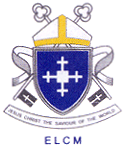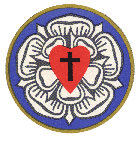
Ecumenism – also called interdenominationalism, transdenominationalism, or ecumenicalism – is the concept and principle that Christians who belong to different Christian denominations should work together to develop closer relationships among their churches and promote Christian unity. The adjective ecumenical is thus applied to any interdenominational initiative that encourages greater cooperation and union among Christian denominations and churches.
While freedom of religion is de jure symbolically enshrined in the Malaysian Constitution, it de facto faces many prohibitions and restrictions. A Malay in Malaysia must strictly be a Muslim, and they cannot convert to another religion. Islamic religious practices are determined by official Sharia law, and Muslims can be fined by the state for not fasting or refusing to pray. The country does not consider itself a secular state and that Islam is the state religion of the country, and individuals with no religious affiliation are viewed with hostility.
A Christian denomination is a distinct religious body within Christianity that comprises all church congregations of the same kind, identifiable by traits such as a name, particular history, organization, leadership, theological doctrine, worship style and, sometimes, a founder. It is a secular and neutral term, generally used to denote any established Christian church. Unlike a cult or sect, a denomination is usually seen as part of the Christian religious mainstream. Most Christian denominations refer to themselves as churches, whereas some newer ones tend to interchangeably use the terms churches, assemblies, fellowships, etc. Divisions between one group and another are defined by authority and doctrine; issues such as the nature of Jesus, the authority of apostolic succession, biblical hermeneutics, theology, ecclesiology, eschatology, and papal primacy may separate one denomination from another. Groups of denominations—often sharing broadly similar beliefs, practices, and historical ties—are sometimes known as "branches of Christianity". These branches differ in many ways, especially through differences in practices and belief.
The World Student Christian Federation (WSCF) is a federation of autonomous national Student Christian Movements (SCM) forming the youth and student arm of the global ecumenical movement. The Federation includes Orthodox, Protestant and Catholic students.

Christianity is a minority religion in Malaysia. In the 2020 census, 9.1% of the Malaysian population identified themselves as Christians. About two-thirds of Malaysia's Christian population lives in East Malaysia, in the states of Sabah and Sarawak. Adherents of Christianity represent majority (50.1%) of the population in Sarawak, which is Malaysia's largest state by land area. The major Christian denominations in Malaysia include Roman Catholics, Anglicans, Baptists, Brethren, non-denominational churches, independent Charismatic churches, Lutherans, Methodists, Presbyterians and Sidang Injil Borneo.

The Conference of European Churches (CEC) was founded in 1959 to promote reconciliation, dialogue and friendship between the churches of Europe at a time of growing Cold War political tensions and divisions.

The Christian Conference of Asia is a regional ecumenical organisation representing 15 National Councils and over 100 denominations (churches) in New Zealand, Australia, Bangladesh, Burma, Cambodia, East Timor, Hong Kong, India, Indonesia, Laos, Japan, Korea, Malaysia, Pakistan, Philippines, Sri Lanka, Taiwan and Thailand.

The Malaysia Baptist Convention is a Baptist Christian denomination in Malaysia. It is affiliated with the Baptist World Alliance. The headquarters is in Petaling Jaya.

The Lutheran Church in Malaysia or LCM is one of four Lutheran bodies in Malaysia. It currently has 52 congregations nationwide with a total of 6,736 baptised members and is the largest entirely Lutheran body in the country. Until 2012, the body was known as the Lutheran Church in Malaysia and Singapore.

The Protestant Church in Sabah or PCS is one of the four Lutheran World Federation member churches in Malaysia. It currently has 322 congregations nationwide in 21 parishes with a total of 32,000 baptised members, making the PCS the second largest of the four Lutheran body in the country. The PCS' membership is primarily made up of the indigenous peoples of Sabah. The current president of the Protestant Church in Sabah is Bishop Justin Sansalu.

The National Council of Churches in the Philippines is a fellowship of ten Protestant and non Roman Catholic Churches in the Philippines denominations, and ten service-oriented organizations in the Philippines. A member of the World Council of Churches and the Christian Conference of Asia, the NCCP represents close to twelve million Protestant adherents. Advocacy for environmental protection and against large-scale mining are part of its core mission. Christian organizations other than churches may be received as associate members.

The Council of Churches of Malaysia (CCM) is an ecumenical fellowship of Churches and Christian organisations in Malaysia. It is one of the three constituent members of the Christian Federation of Malaysia.

The Malaysian Consultative Council of Buddhism, Christianity, Hinduism, Sikhism and Taoism is a non-profit interfaith organization in Malaysia. Initially formed in 1983 as the "Malaysian Consultative Council of Buddhism, Christianity, Hinduism and Sikhism", it is composed primarily of officials from the main non-Muslim faith communities in Malaysia and acts as a consultative and liaison body towards more open dialogue and co-operation. It prioritizes round-table dialogue as its principal means towards conflict resolution amongst all Malaysians, irrespective of creed, religion, race, culture, or gender. In 2006, Taoists were officially represented for the first time in the organization and the name was changed to the current form in their Annual General Meeting on 27 September of the same year. Their current vision is represented through the slogan "Many Faiths, One Nation."

The following outline is provided as an overview of and topical guide to Christianity:

The Evangelical Lutheran Church in Malaysia or ELCM is one of the four Lutheran bodies in Malaysia. It currently has 21 congregations nationwide with a total of 3,650 members.

The Lutheran Church in Singapore (LCS) is a Lutheran denomination in Singapore. Constituted in 1997, it currently has approximately 2,834 members in 7 congregations nationwide.
The Evangelical Lutheran Church in Jordan and the Holy Land (ELCJHL) is a Lutheran denomination that has congregations in Jordan and State of Palestine. First recognized as an autonomous religious community by King Hussein in 1959, the church currently has 2,500 members in six congregations.
Articles related to Christianity include:
The Sabah Methodist Church is a body within the Methodist tradition in Malaysia. With approximately 200,000 members in more than 1034 congregations, it is the largest Protestant denomination in the country. The current bishop of the Methodist Church in Malaysia is the Rev Dr Ong Hwai Teik.












